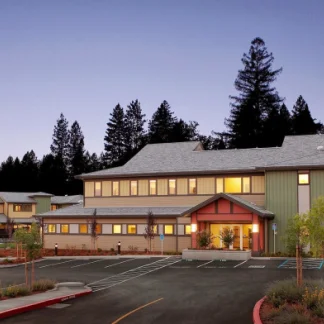Sierra EEG
Sierra EEG, located in Grass Valley, California, is an outpatient mental health ...
Granite Wellness Centers, located in Grass Valley, California, offers alcohol and drug rehab services to men and women seeking recovery. They provide a broad continuum of care that starts with detox and extends to outpatient care.
Granite Wellness Centers focuses on providing the tools necessary for individuals to succeed in abstinence and recovery. Their services include medication-assisted treatment, inpatient treatment, and outpatient treatment.
The medication-assisted treatment program is a detoxification program that uses FDA-approved medications in combination with mental health counseling and relapse-prevention services.
The inpatient treatment center offers around-the-clock supervision. Individual therapy, group therapy, skills classes, and psychoeducational groups are provided.
The outpatient program offers individual therapy, group therapy, family therapy, couples counseling, DUI classes, and wellness classes.
Granite Wellness Centers accepts most insurance plans, including Magellan, Kaiser, HCSC, and Blue Cross Blue Shield. Out of network benefits may vary, so it’s important to verify coverage prior to treatment.
Contact us for more information: (530) 273-9541

Connect with Granite Wellness Centers by calling their admissions team directly.
(530) 273-9541 Website Get DirectionsResearch clearly demonstrates that recovery is far more successful and sustainable when loved ones like family members participate in rehab and substance abuse treatment. Genetic factors may be at play when it comes to drug and alcohol addiction, as well as mental health issues. Family dynamics often play a critical role in addiction triggers, and if properly educated, family members can be a strong source of support when it comes to rehabilitation.
Group therapy is any therapeutic work that happens in a group (not one-on-one). There are a number of different group therapy modalities, including support groups, experiential therapy, psycho-education, and more. Group therapy involves treatment as well as processing interaction between group members.
In individual therapy, a patient meets one-on-one with a trained psychologist or counselor. Therapy is a pivotal part of effective substance abuse treatment, as it often covers root causes of addiction, including challenges faced by the patient in their social, family, and work/school life.
Life skills trainings involve all the skills a person must have in order to function successfully in the world. These include time management, career guidance, money management, and effective communication. Truly successful addiction recovery is based on the ability to not only live substance-free, but to thrive. Life skills teaches the practical necessities of functioning in society, which sets clients up for success in life, and therefore sobriety.
Group therapy is any therapeutic work that happens in a group (not one-on-one). There are a number of different group therapy modalities, including support groups, experiential therapy, psycho-education, and more. Group therapy involves treatment as well as processing interaction between group members.
In individual therapy, a patient meets one-on-one with a trained psychologist or counselor. Therapy is a pivotal part of effective substance abuse treatment, as it often covers root causes of addiction, including challenges faced by the patient in their social, family, and work/school life.
Life skills trainings involve all the skills a person must have in order to function successfully in the world. These include time management, career guidance, money management, and effective communication. Truly successful addiction recovery is based on the ability to not only live substance-free, but to thrive. Life skills teaches the practical necessities of functioning in society, which sets clients up for success in life, and therefore sobriety.
In individual therapy, a patient meets one-on-one with a trained psychologist or counselor. Therapy is a pivotal part of effective substance abuse treatment, as it often covers root causes of addiction, including challenges faced by the patient in their social, family, and work/school life.
Life skills trainings involve all the skills a person must have in order to function successfully in the world. These include time management, career guidance, money management, and effective communication. Truly successful addiction recovery is based on the ability to not only live substance-free, but to thrive. Life skills teaches the practical necessities of functioning in society, which sets clients up for success in life, and therefore sobriety.
Life skills trainings involve all the skills a person must have in order to function successfully in the world. These include time management, career guidance, money management, and effective communication. Truly successful addiction recovery is based on the ability to not only live substance-free, but to thrive. Life skills teaches the practical necessities of functioning in society, which sets clients up for success in life, and therefore sobriety.
Sierra EEG, located in Grass Valley, California, is an outpatient mental health ...
Community Recovery Resources - Inpatient, located in Grass Valley, California, p...
Al Anon in Grass Valley, California offers free 12-Step meetings for individuals...
Victor Community Support Services, located in Grass Valley, California, offers b...